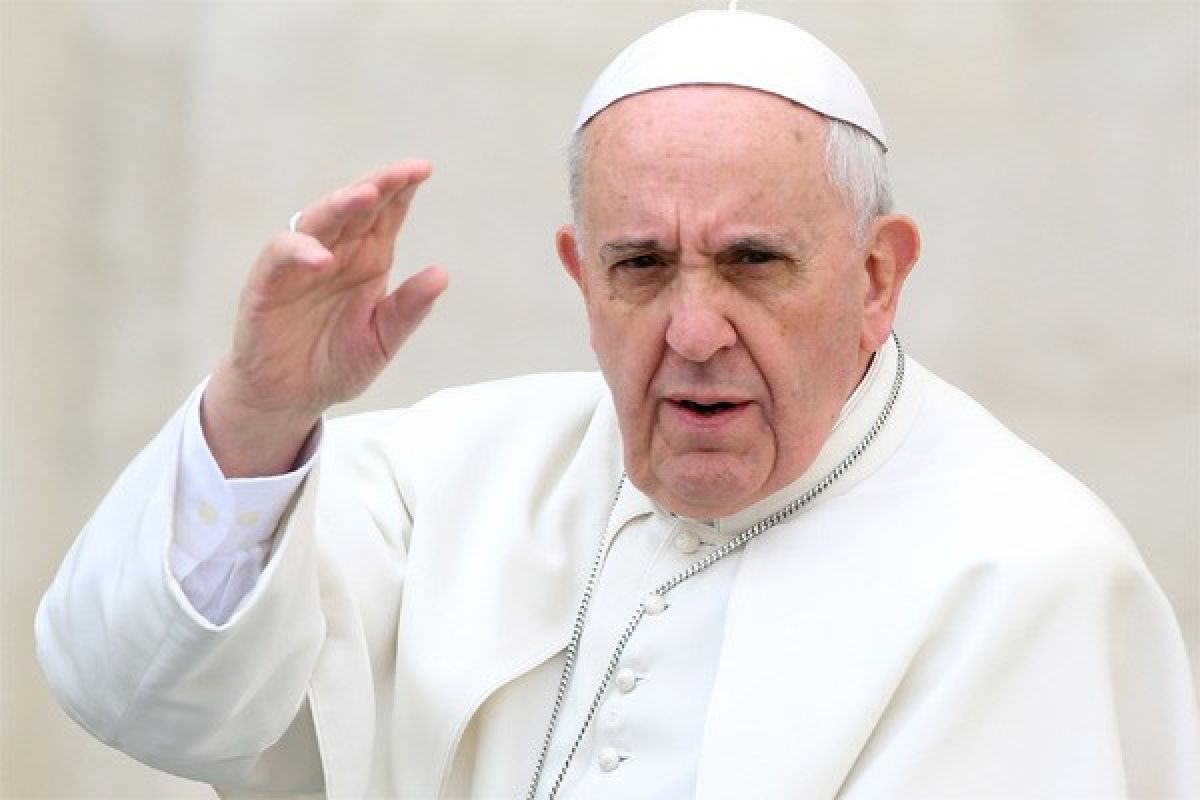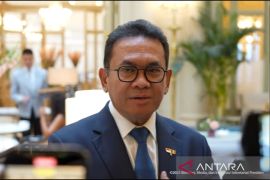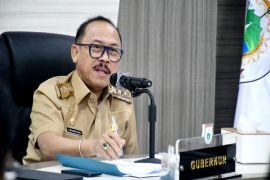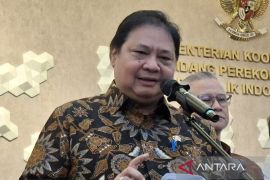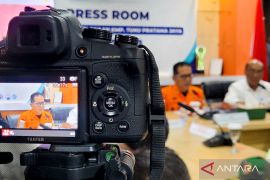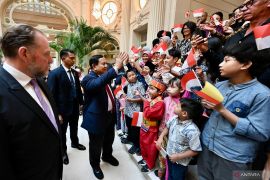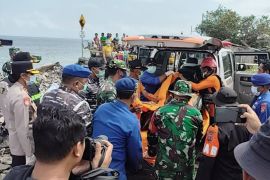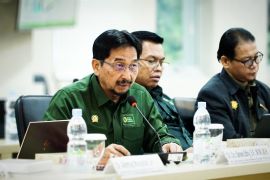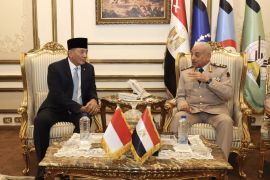Pope had welcomed Iran`s historic nuclear deal and viewed it as a positive sign.Jakarta (ANTARA News) - "May one cry rise up from every land---say no to war and violence and yes to dialog and peace," Pope Francis said on the anniversary of the Hiroshima and Nagasaki tragedy.
"With war, one always loses. The only way to win a war is to never wage it," he added.
On August 9, the Pope also told attendants at St. Peters Square that humanity should simply reject war and most definitely "ban nuclear weapons and all weapons of mass destruction."
Earlier, the Pope had welcomed Irans historic nuclear deal and viewed it as a positive sign.
Under the new deal, the decades-old sanctions from the United States, European Union and the United Nations will eventually be lifted in exchange for Iran agreeing to restrict its nuclear program to peaceful purposes.
The Indonesian government lauded the agreement reached between Iran and the P5+1 group, in Vienna on July 14. The group includes the United States, Russia, China, Britain, France and Germany.
According to a statement released by the Foreign Affairs Ministry, the Indonesian government considers the agreement a historic achievement that ended 12 years of protracted talks that began in 2003.
Indonesia hopes that the deal reconfirms the right of every nation to develop nuclear energy for peaceful purposes, as guaranteed by the Nuclear Non-Proliferation Treaty.
"The agreement proved the effectiveness of adopting peaceful ways to resolve problems, in line with Indonesias stance. The country has always called for diplomacy and holding dialogs to seek a solution to the problem related to Irans nuclear program," the Foreign Affairs Ministry remarked.
In addition, Indonesian Vice President M. Jusuf Kalla expressed his appreciation of the agreement on Irans nuclear program while receiving Iranian Ambassador to Indonesia Valiollah Mohammadi.
Kalla believes that the sanctions on Iran can be lifted so its government can cooperate with other countries, Deputy Head Secretariat of the Vice President for Policy Support of the Government Dewi Fortuna Anwar stated after the meeting with the Iranian ambassador on July 30.
"The vice president is very pleased because the sanctions on Iran can be lifted," Anwar affirmed.
An Iranian delegation will visit Indonesia to discuss the use of nuclear technology for peaceful purposes.
"The Islamic Republic of Iran is ready to share its experience in the field of advanced nuclear technology in accordance with international regulations," the Iranian ambassador told the press after the meeting with Kalla.
Indonesia is committed to realizing a nuclear-free world but supports the use of nuclear energy for peaceful purposes.
On December 6, 2011, the countrys House of Representatives passed a legislation officially endorsing the Comprehensive Nuclear-Test-Ban Treaty, which prohibits nuclear explosions from being conducted in all environments for military or civilian purposes.
In March 2014, Indonesia passed a law to ratify the International Convention for the Suppression of Acts of Nuclear Terrorism.
Moreover, Indonesia has been actively pushing for a world free of nuclear weapons at various regional and international forums, such as the United Nations, the Non-Aligned Movement (NAM), and ASEAN.
NAM stressed that the complete elimination of nuclear weapons was the only absolute guarantee against their use or the threat they posed.
"The movement emphasizes the necessity to start negotiations, as soon as possible, in the Conference on Disarmament on a phased program for the complete elimination of nuclear weapons with a specified framework of time, including a Nuclear Weapons Convention. The complete elimination of nuclear weapons by 2025 should be the aim," Hasan Kleib, the then Indonesian permanent representative to the United Nations, explained on behalf of NAM at the United Nations meeting in 2010.
On the final day of its 16th ministerial meeting in Bali, in May 2011, NAM issued a statement on the "Total Elimination of Nuclear Weapons," calling for nuclear weapons disarmament for the sake of maintaining world peace.
However, contrary to the worlds opinion welcoming the Iranian nuclear program agreement, Israel considers the deal a disaster.
Prime Minister Benyamin Netanyahu fiercely criticized the deal, calling it "a stunning historic mistake" and also declaring that Israel was not "bound" by it.
So far, Israel has maintained its status as a regional nuclear monopoly believed to possess a substantial amount of nuclear weapons.
Israel reportedly has had nuclear weapons since the mid-1960s. They were developed with the assistance of France, the United Kingdom, the United States and other countries, despite these countries publicly opposing nuclear proliferation.
Israels possession of nukes was a closely guarded secret till 1986, when an engineer, Mordechai Vanunu, leaked documents to the British press confirming their existence.
Despite the reports on Israels nuclear weapons possession---something that the country has neither confirmed nor denied---the United Nations has never tried to inspect the claim.
In September 2014, Reuters reported that in a draft text circulated at a meeting of the International Atomic Energy Agency (IAEA), 18 Arab states expressed "concern about Israels nuclear capabilities" and called upon the country "to accede to the nuclear Non-Proliferation Treaty and place all its nuclear facilities under the comprehensive IAEA safeguards."
However, the United States and its allies rejected the draft resolution.
This rejection from Western countries affirms Israels nuclear arsenal monopoly in the Middle East. It also indicates that there is still a long way to go before the world is free of nuclear weapons.(*)
Reporter: Fardah
Editor: Heru Purwanto
Copyright © ANTARA 2015
